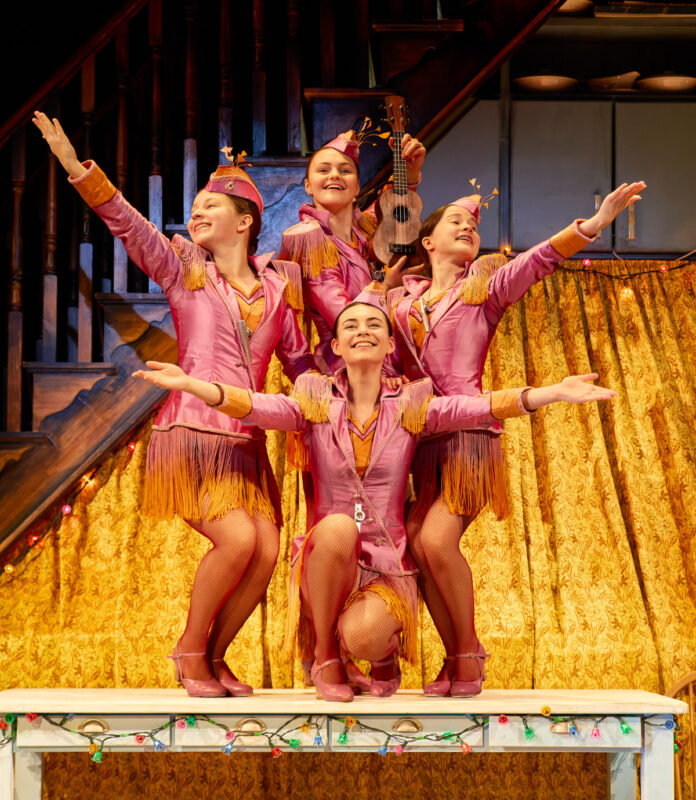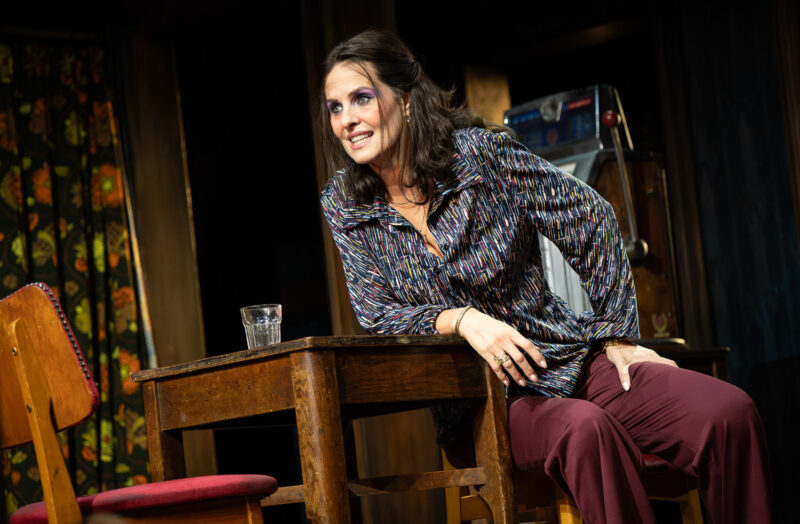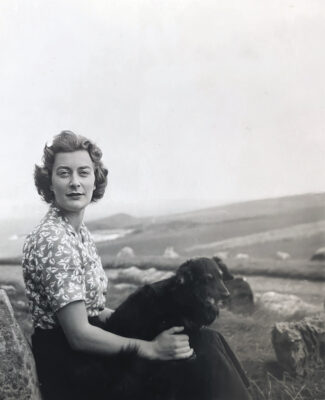
On Broadway
The Hills of California
Jez Butterworth’s new play is a delicate examination of sisterhood, secrets, and the stories families tell themselves.
Named for William Blake’s hymn Jerusalem—that stirring anthem of England’s mythic past that echoes through royal weddings and village churches alike—playwright Jez Butterworth’s 2009 masterpiece gave us Johnny “Rooster” Byron, a modern-day Falstaff in a Wiltshire wood.
In Byron, Butterworth conjures England’s ancient Green Man, that enduring symbol of wildness and renewal (so deeply woven into the national consciousness that artist Andrew Jamieson incorporated it into King Charles III’s coronation invitation). Like the hymn itself, which imagines Jesus walking England’s “green and pleasant land,” Byron spins tales of giants and ancient drum beats—all while hosting drug-fueled raves in his dilapidated trailer. The ironic tension between Blake’s spiritual vision and Byron’s earthly debauchery sets up the play’s central conflict between England’s romantic self-image and its grittier realities.
Fifteen years later, The Hills of California marks a striking evolution in Butterworth’s exploration of family, myth, and memory. Trading Byron’s masculine bravado for a delicate examination of sisterhood, the play centers on the Webb sisters returning to their Blackpool home during the scorching summer of 1976.
Where Jerusalem roared with dionysian energy, The Hills of California whispers its truths through the intimate dynamics of four sisters grappling with their dying mother’s legacy. Laura Donnelly’s Veronica anchors the production as the sister who escaped to America, returning to confront both her siblings and their shared past.


The production uses the infamous 1976 heatwave as both setting and metaphor, with the oppressive temperatures forcing long-buried tensions to the surface. Director Sam Mendes orchestrates the family drama with characteristic precision, finding moments of humor in the darkness and poetry in the mundane. Where Rooster commanded attention through physical presence, here the Webb sisters wage war through words and silences. In their charged pauses and fractious gathering, the ghost of Harold Pinter’s The Birthday Party hovers over the production.


The play moves between 1976 and the sisters’ 1950s childhood when they performed as a singing act, like the famous Andrews sisters. Butterworth explores themes of performance, memory, and the stories families tell themselves. Secrets are revealed, of course, and the audience is reminded that that #MeToo moments have been going on for as long as fame and fortune have had their glittering appeal. It’s a more subtle approach than Jerusalem’s full-frontal assault on English mythmaking, but no less effective.
Rob Howell’s set alternates between a realistic 1970s boarding house and the golden-hued memories of the sisters’ performing days. In moving from the green fields of Wiltshire to the faded glamour of Blackpool, Butterworth demonstrates his range while maintaining his fascination with how the past haunts the present. If Jerusalem was a defiant last stand, The Hills of California is a more nuanced exploration of how we carry our histories forward, suggesting that sometimes the most profound truths are found not in mythic declarations but in the quiet spaces between sisters’ words.
The Hills of California runs until December 22nd, 2024 at the Broadhurst Theatre, 235 West 44th Street.
Hero photo by Joan Marcus



